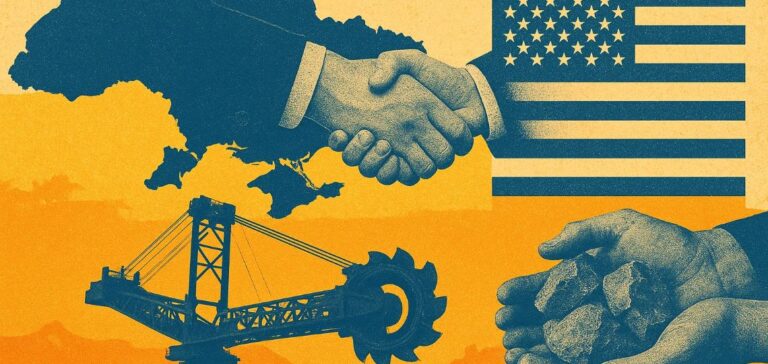Ukraine is preparing to submit for parliamentary ratification an agreement signed with the United States regarding the exploitation of its natural resources, according to an official statement by Minister of Economy Ioulia Svyrydenko. The agreement, finalised in late April after several weeks of negotiations, aims to structure the joint extraction of raw materials, including oil, gas and rare minerals.
A co-financing mechanism between Kyiv and Washington
The agreement provides for the creation of a joint investment fund intended to support the reconstruction of Ukraine’s economy. The American contribution will consist of new military aid, while the Ukrainian share will come from 50% of royalties derived from upcoming resource exploitation licences. These licences will cover a total of 57 types of natural resources. The fund will be jointly managed by both governments.
Clarification on financial commitments
According to Ms Svyrydenko, military aid granted by the United States since the start of the conflict in 2022 will not be classified as Ukrainian debt, contrary to the position initially supported by former President Donald Trump. She stressed that this represents “investments in the Ukrainian economy,” which she sees as a shift in bilateral cooperation.
Text revised after diplomatic tensions
An initial version of the agreement, proposed by Washington in March, was criticised for being perceived as unbalanced against Kyiv. The version now up for vote was revised following tense discussions, including a confrontational exchange between Presidents Volodymyr Zelensky and Donald Trump in the Oval Office in February. The minister reiterated that the Ukrainian Constitution ensures national control over natural resources.
No security clause included in the agreement
The agreement does not include any security or defence guarantees from the United States, a point Ukraine had emphasised during the negotiations. Nevertheless, Ms Svyrydenko stated that the government hoped the agreement would pave the way for future aid in this area. The parliamentary vote is scheduled for later in the day.






















